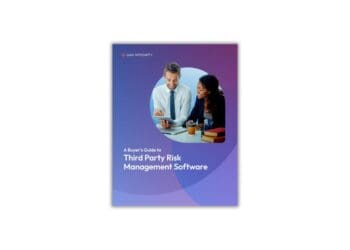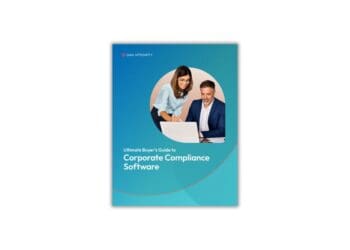This post was originally shared in the ACC Docket and is republished here with permission from the author.
Most compliance and ethics professionals would likely agree that their field has come a long way since the U.S. Sentencing Commission first published the “Seven Elements of an Effective Compliance Program” in 1991. Over the years, a significant body of knowledge has developed regarding a whole range of activities aimed at detecting and preventing criminal conduct and building strong ethical cultures. These include writing codes of conduct, managing corporate governance documents, administering ethics helplines, conducting risk assessments and delivering training on every compliance and ethics topic under the sun. Moreover, in many corporations – especially those that have suffered through governmental enforcement actions – compliance and ethics professionals are part of the senior management team advising company leaders and boards of directors on a wide range of subjects related to the effective management of legal and ethical risks.
For over a dozen years now, I’ve had the privilege of performing this work in several multinational corporations. In so doing, like many others, I’ve done my best to work with business leaders around the world to not only take steps to keep firms out of trouble, but also to improve their business performance over the long term. Although my work has touched upon many aspects of the business, it has never involved participating in deliberations associated with employee pay. I’m supposing the same is true for many of my counterparts in other companies. I have attended many compliance and ethics conference presentations over the years covering hundreds of “how to” compliance and ethics program topics, but I can’t recall one occasion in which the focus was on how to ensure equitable compensation for employees. Given the centrality of compensation issues to fundamental fairness and organizational justice, maybe it’s time that this change.
My awareness of this “gap” in compliance and ethics programs came to the fore after reading Robert Reich’s 2012 book, entitled Beyond Outrage: What Has Gone Wrong with Our Economy and Our Democracy and How to Fix It. As you may know, Robert Reich is an American political economist, professor and political commentator. He served in the administrations of Presidents Gerald Ford and Jimmy Carter and was Secretary of Labor under President Bill Clinton from 1993 to 1997. Although I don’t share Reich’s apparent hostility toward corporations, his basic observations about what has happened to the middle class in the United States appear to be sound. Specifically, he details how over the last 30 years, the United States has set key economic policies premised on a form of “social Darwinism” that has resulted in economic inequities that are beginning to dominate the political debate. I don’t think that compliance and ethics officers should devote their limited resources toward modifying macroeconomic policies. But perhaps it is time for us, as a profession, to evaluate whether our firms are paying employees a fair wage.
There are many possible arguments against seeking to expand the reach of our compliance and ethics programs to include scrutiny of employee pay scales. Some in our organizations are likely to oppose our involvement because it’s beyond the scope of compliance and ethics programs that should focus entirely on detecting and preventing criminal conduct. Many compliance and ethics programs may lack the resources to do what they are already supposed to be doing, and don’t have the bandwidth to turn to this issue. Even in those programs with sufficient resources and management support, some might claim that compliance and ethics professionals lack the skills to make a meaningful contribution in deliberations regarding pay equity. These are real challenges that would have to be overcome if we desired to delve into employee compensation issues.
Nevertheless, I think we need to confront an important question: If we are really interested in building and sustaining strong ethical cultures, how can we completely ignore questions relating to the basic ethical obligation our companies have to pay a fair wage? It seems to me that, if we ignore this fundamental issue, we will miss the opportunity to have a positive impact on a critical aspect of organizational justice.
So, supposing that you wanted to get off the sidelines and get into the pay equity game, how might you go about doing it? Here are some ideas you might consider if you were so inclined:
- Seek to fold pay equity issues into your annual risk assessment process by seeking information about the systems in place to detect and prevent illegal discrimination. There are dozens of laws regarding pay equity, and it may not raise as many eyebrows in your firm if you couch your involvement in this issue in terms of compliance with law.
- Connect with your colleagues in human resources with the object of better understanding how wages are determined in all locations around the world. Evaluate these systems with an eye toward determining whether they meet standards of fundamental fairness.
- Find out whether there is any analysis being done on a regular basis regarding pay equity and promotions between genders and races. If so, ask whether there are systems to take corrective action in circumstances where discrimination has been detected.
- Suggest that an analysis be done regarding the lowest paid full-time workers at your firm to determine whether they are being paid a living wage and whether any segment of your full-time workforce must rely upon government welfare programs to ensure their basic needs for food and shelter are met. In circumstances where employees are not receiving wages sufficient to meet their basic needs, be an advocate for changes that will raise their pay.
- Evaluate the degree to which your firm might be exploiting workers by calling them “managers” for the purpose of avoiding the necessity of paying them overtime. Be an advocate for policies that do not put managers in a position where their total compensation is less than it would be if they were paid a reasonable wage on an hourly basis.
Unless you are working for a retail or fast food giant, taking these steps at your company will likely not have a material impact on the macroeconomic policies that will be hotly debated in this and many other election cycles to come. But you will have done your part to prevent illegal discrimination, promote an ethical work environment, help your colleagues, improve employee engagement and loyalty as well as your firm’s reputation as an employer of choice.













